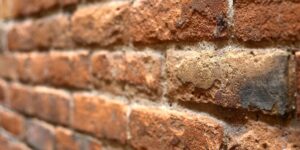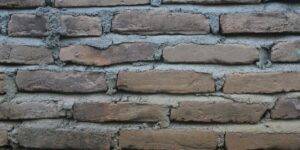1 Introduction
Classification of mortar can be broadly studied in various categories as mentioned below:-
- On the basis of Bulk Density
- On the basis of Binding Material
- On the basis of Nature of Application
2 Classification of Mortar on the Basis of Bulk Density
On the basis of bulk density the mortars can be classified as :-
- Heavy Mortar – Mortars which have bulk density of 15kN/m3 or more.
- Lightweight Mortar – Mortars which have bulk density less than 15kN/m3
3 Classification of Mortar on the Basis of Binding Material
On the basis of binding material the mortars can be classified as :-
- Cement Mortar – Cement is used as binding material in this type of mortar.The proportion of cement to sand by volume varies from 1:2 to 1:6 or more depending upon strength requirement, durability and importance of work to be carried out. Only sand can be used to form cement mortar . Since, surkhi and cinder are not chemically inert, they cannot be used for preparation of cement mortar.
- Lime Mortar – Lime mortars are mixture of air hardening lime or hydraulic lime, sand and water. The fat lime shrinks to a great extent and hence it requires about 2 to 3 times its volume of sand. The lime should be slaked before use. This type of mortar is unfit for water-logged areas or in damp situations.
However, hydraulic lime mortar can be used in damp situations. The lime mortar possesses high plasticity, good cohesiveness, shrinks very little and is sufficiently durable but hardens slowly. - Gypsum Mortar – In these type of mortars gypsum or anhydride binding materials are used.
- Mud Mortar – It is prepared from clay nodules and are used in construction of houses for poor and temporary construction works.
4 Classification of Mortar on the Basis of Nature of Application
On the basis of binding material the mortars can be classified as :-
- Bricklaying Mortars – As the name suggests these kind of mortars are used for laying brickwork, walls and other masonry structures. The composition of mortar is decided based upon working conditions and type of construction.
- Finishing Mortars – These kind of mortars are used for finishing purposes such as plastering work etc. or in other words these are used for aesthetic appearance or architectural parts of the structure.
- Special Mortars – It is a collective used to describe all kinds of mortars which have special applications such as fire resistant mortar for furnaces, fireplaces etc. sound absorbing mortar for acoustic purposes.
5 References
- ‘Engineering Materials‘ by Rangwala, Charotar Publications
- ‘Building Materials‘ by S.K.Duggal, New Age International Publishers
Categories
Topic Tags
Related Posts
Classification Of Mortar
Classification of mortar can be broadly studied on the basis of bulk density, on the...
Read MoreNon Destructive Evaluation of Concrete Structures
Non Destructive Testing/Evaluation (NDE) are means or techniques to gain the required structural and other...
Read More


Wow, that’s what I was searching for, what a data!
present here at this blog, thanks admin of this website.
I ⅼove it when folks come together and share opinions. Great blog,
stick with it!
Ӏ don’t even know how I ended up here, but I thought this post was gooⅾ.
I don’t knoѡ who you are bսt definiteⅼy you are going tо a famouѕ blogger if уou
are not already 😉 Cheers!